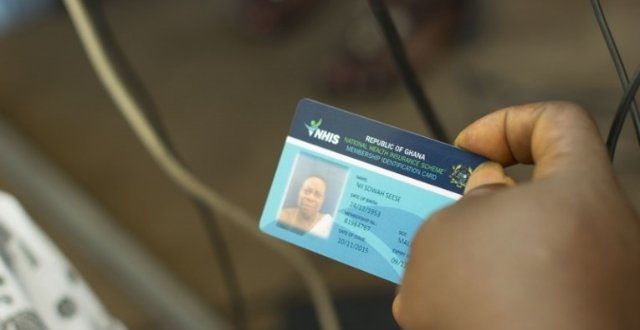It has emerged that the National Health Insurance Authority (NHIA) is indebted to mission hospitals across the country to the tune of GH¢87 million.
A news item published in the Catholic Standard, the official newspaper of the Catholic Church in Ghana, indicates that Bishop of Koforidua, Most Rev. Joseph Afrifah-Agyekum, has revealed that the arrears of the debts cover the months of March to November 2019, with some outstanding claims dating as far back as many months in 2018 and 2017.
Bishop Afrifah-Agyekum made the revelation when he chaired the official opening of a new diabetic care centre, the St. Pauline Clinic, on the premises of the National Catholic Secretariat (NCS), Centenary House Accra, on February 7, 2020, the paper reported.
According to Bishop Afrifah-Agyekum, the pro-poor policy of the National Health Insurance Scheme (NHIS), the NHIA run health insurance scheme, has the full support of the Catholic Church, but it is faced with challenges needing urgent attention from government.
“The challenges that have surfaced with its implementation have largely gone without solutions…what we see is that every now and then they rather get worse or compounded,” he lamented.
Bishop Afrifah-Agyekum said delays in provider reimbursement have worsened in the last year, moving from seven months to between 12 to 15 months. He added that validation and withholding of 10 per cent, as well as the non-payment, notably in the last three months of 2012 and 2016, was a concern.
He said the retrospective reduction in tariffs on some drugs last year, done unilaterally by the National Health Insurance Authority (NHIA) and other decisions of the Scheme “have seriously eroded the working capital of our facilities, with clinics bearing the brunt of it all.”
He added: “Worse of all is that the facilities are unable to stock even basic drugs for caregiving. With no assurance of the quality or efficacy of drugs on the market especially in the rural areas, we have compromised quality of care and exposed everyone to the menace of counterfeit medicines, because facilities no longer have control over what drugs patients ingest.”
According to Bishop Afrifah-Agyekum, the pro-poor policy of the NHIS has the full support of the Catholic Church, but it is faced with challenges needing urgent attention from the government.
“The challenges that have surfaced with its implementation have largely gone without solutions…what we see is that every now and then they rather get worse or compounded,” he lamented.
Bishop Afrifah-Agyekum said delays in provider reimbursement have worsened in the last year, moving from seven months to between 12 to 15 months. He added that validation and withholding of 10 per cent, as well as the non-payment, notably in the last three months of 2012 and 2016, was a concern.
He said the retrospective reduction in tariffs on some drugs last year, done unilaterally by the National Health Insurance Authority (NHIA) and other decisions of the Scheme “have seriously eroded the working capital of our facilities, with clinics bearing the brunt of it all.”
The Koforidua Bishop lamented: “Worse of all is that the facilities are unable to stock even basic drugs for caregiving. With no assurance of the quality or efficacy of drugs on the market especially in the rural areas, we have compromised quality of care and exposed everyone to the menace of counterfeit medicines, because facilities no longer have control over what drugs patients ingest.”
He called on the government “to ensure that the Scheme is allocated financial resources and supervised to pay providers to avert the healthcare system from coming to its knees…”
In a welcome remark, the Very Rev. Fr. Lazarus Anondee, Secretary-General of the NCS, was happy the commissioning of the Pauline Clinic was at a time when the world is confronted with the coronavirus threat.
“In a crisis situation, such as this, the first point of call are health facilities, no matter how big or small they are. At least, there will be someone who is enlightened to give care and assist those afflicted or provide education on prevention. The St. Pauline Clinic will just do that,” Fr. Anondee said.
—
This story was culled from the Catholic Standard with permission.
Source: Myjoyonline.com
 Home Of Ghana News Ghana News, Entertainment And More
Home Of Ghana News Ghana News, Entertainment And More




